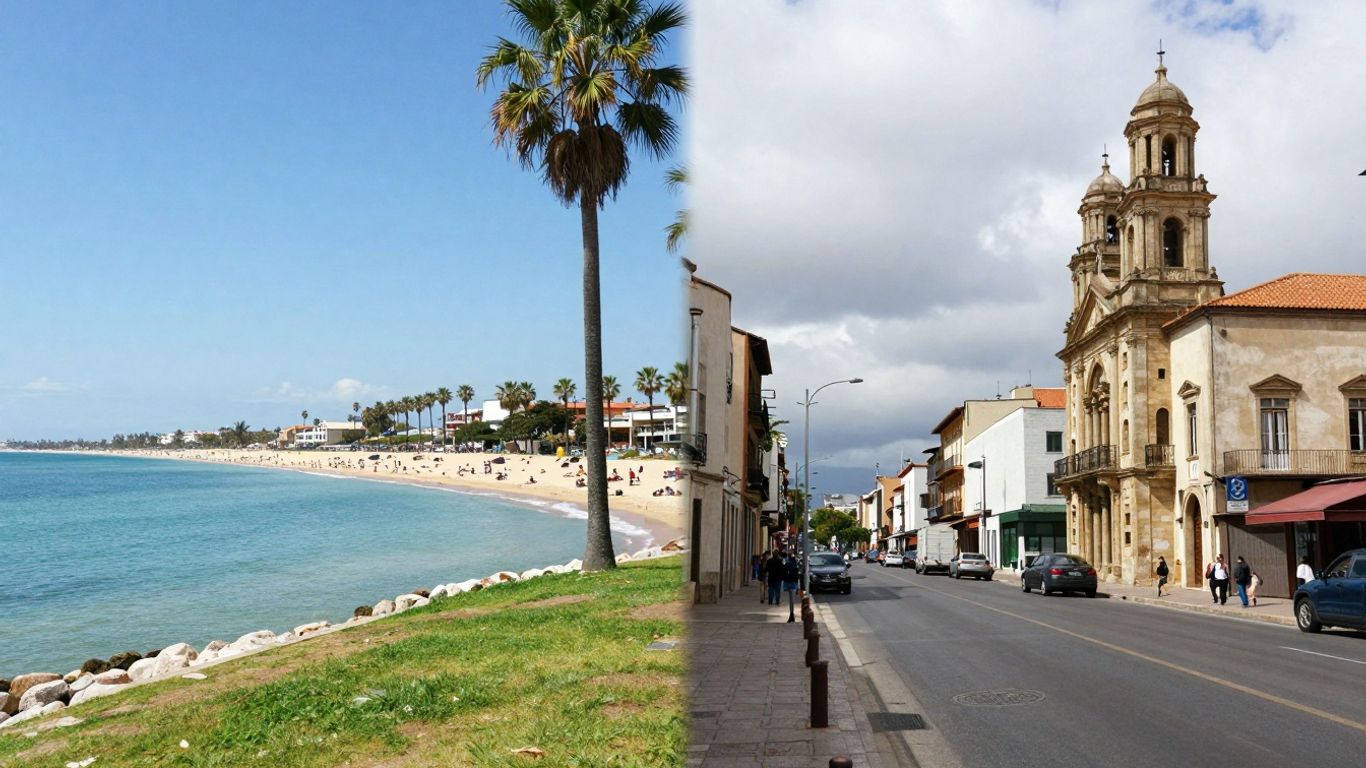Thinking about joining an allied health collective in Bendigo? It’s a good idea, especially if you’re looking to grow your practice and help more people in the community. These groups are all about working together, sharing what you know, and making sure everyone gets the best care possible. It’s a way to connect with other health pros and really make a difference right here in Bendigo.
Key Takeaways
- An allied health collective helps professionals learn from each other and get better at their jobs.
- Being part of a group means patients in Bendigo can get more coordinated and effective care.
- These collectives are important for keeping talented health workers in Bendigo and encouraging new ideas.
- They play a role in improving health services, especially in areas outside major cities.
- Joining a collective offers practical benefits like shared resources and a stronger voice for advocacy.
Enhancing Professional Practice Through an Allied Health Collective
Joining forces in an allied health collective can really make a difference to how you work day-to-day. It’s not just about having more people around; it’s about actively growing your skills and understanding.
Collaborative Learning and Skill Development
Think about it – you’re working alongside physios, OTs, speech pathologists, and others. This setup naturally creates opportunities to pick up new tricks and approaches. You might see how a different discipline tackles a common problem, or perhaps you’ll be the one sharing your unique insights. It’s a constant, informal learning environment. For instance, a specialist training program funded through a staff scholarship has shown how clinical competency can be significantly improved, leading to better patient care [9e19]. This kind of structured learning, often facilitated by collectives, is invaluable.
Access to Diverse Expertise
No single allied health professional knows everything. A collective brings together a wide range of specialisations and experiences. If you’re stuck on a complex case, chances are someone in the group has dealt with something similar. This access to varied knowledge means you’re less likely to feel isolated with a difficult patient. It’s like having a readily available pool of consultants, all within your professional network.
Shared Professional Development Opportunities
Organising professional development can be a hassle, especially when you’re trying to do it alone. A collective can share the load, identifying relevant workshops, training sessions, or even developing in-house training based on the group’s needs. This could include anything from learning new assessment techniques to understanding the latest research. It makes staying up-to-date much more manageable and often more affordable when costs are shared.
Benefits of a Bendigo Allied Health Collective for Patient Care

When allied health professionals in Bendigo come together in a collective, it really changes how people get care. It means patients get a more complete picture of their health needs met.
Improved Patient Outcomes
Working together means different health pros can share what they know about a patient. This stops things falling through the cracks. For example, a physio might notice something about a patient’s diet that a dietitian could help with, or a speech pathologist might pick up on a mental health concern that a psychologist could address. This joined-up approach means patients get the right help, faster, and their overall health usually gets better.
Holistic Patient Management
Instead of seeing one specialist after another, a collective allows for a more rounded view. Think about someone recovering from surgery. They might need a physio for movement, an occupational therapist for daily living tasks, and maybe a dietitian for nutrition. With a collective, these professionals can talk to each other, plan care together, and make sure the patient isn’t just getting better physically, but also mentally and socially. It’s about treating the whole person, not just the condition.
Enhanced Access to Services
Sometimes, especially in regional areas like Bendigo, getting to see the right specialist can be tough. A collective can make this easier. By sharing information and having clearer ways to refer patients between different services, people can get the help they need without long waits or confusing referral processes. It can also mean that if one service is busy, another within the collective might have availability, keeping care moving forward.
Building a Stronger Allied Health Workforce in Bendigo
Attracting and keeping good allied health professionals in Bendigo is a big deal for our community’s health. It’s not just about filling positions; it’s about making sure we have skilled people who want to stay and grow their careers right here. When we have a stable and experienced team, patients get better, more consistent care.
Attracting and Retaining Talent
We need to make Bendigo a place where allied health workers want to come and, importantly, stay. This means looking at what makes a job attractive. Think about:
- Competitive Remuneration: Are our salaries and benefits keeping pace with other regions?
- Professional Growth: Are there clear pathways for career advancement and skill development?
- Work-Life Balance: Does Bendigo offer a lifestyle that appeals to health professionals and their families?
Mentorship and Support Networks
New professionals, especially those coming from university, often need guidance. Establishing strong mentorship programs within a collective can make a huge difference. Experienced practitioners can share their knowledge, helping newer team members build confidence and competence. This also creates a supportive environment, reducing the feeling of isolation that can sometimes hit when you’re starting out in a new place. It’s about building connections that last.
A collective can act as a hub, connecting new practitioners with seasoned professionals who can offer advice and support. This informal learning and encouragement is just as important as formal training.
Fostering Innovation in Practice
When allied health professionals come together, they bring different ideas and approaches. A collective provides a platform for sharing these innovations. Imagine a group meeting where a physiotherapist shares a new technique they learned, or an occupational therapist discusses a successful community program. This cross-pollination of ideas can lead to better ways of working and improved patient care across the board. It’s about creating a culture where new ideas are welcomed and explored, benefiting everyone involved, including the local health sector.
The Role of Allied Health Collectives in Rural Health
Rural areas often face unique challenges when it comes to healthcare, and allied health professionals are no exception. Collectives can really make a difference here.
Addressing Rural Health Disparities
One of the biggest issues in rural settings is the gap in services compared to urban centres. Allied health collectives can help bridge this gap by pooling resources and expertise. This means people living in Bendigo and surrounding rural areas get access to a wider range of allied health support without having to travel long distances. It’s about making sure everyone, no matter where they live, has a fair go at getting the care they need.
Developing Rural Health Professionals
It can be tough for allied health professionals to get the right training and support when they’re working rurally. Collectives can provide opportunities for ongoing professional development and skill-building, often tailored to the specific needs of rural practice. Think about student placements, for example; these are frequently conducted in various rural settings, encompassing community health, private practices, and hospitals [0679]. This hands-on experience is invaluable for building a capable rural health workforce.
- Structured mentorship programs connecting experienced practitioners with newer ones.
- Workshops and training sessions focused on common rural health issues.
- Opportunities for peer support and sharing of best practices.
Working in a rural setting presents its own set of rewards and challenges. Being part of a collective means you’re not isolated; you have a network of colleagues who understand the local context and can offer practical advice and support.
Strengthening Community Health Services
By working together, allied health professionals in a collective can develop more integrated and effective community health services. This might involve creating streamlined referral pathways between different allied health disciplines or collaborating on local health initiatives. It’s about building a stronger, more resilient health system right here in our community.
Key Advantages of Joining an Allied Health Collective

Shared Resources and Infrastructure
Think about the costs involved in running a private practice – rent, equipment, administrative staff. It all adds up, doesn’t it? Joining a collective means you can share these overheads. Instead of each of us paying for a full-time receptionist, we can share one. We can also pool our resources for things like booking systems, billing software, or even specialised equipment that might be too expensive for one person to buy. This shared approach can really cut down on expenses, making it easier to keep your practice financially healthy. It’s about working smarter, not harder, and making the most of what we have right here in Bendigo.
Streamlined Referral Pathways
One of the biggest headaches for allied health professionals is getting patients to the right person. It can be a bit of a maze sometimes, right? A collective makes this so much simpler. When you know the other practitioners in your group, you understand their specialities and how they work. This means you can confidently refer patients knowing they’ll get great care. It also means patients get seen by the right professional faster, which is always a win for them. We’re looking at creating a more connected system, so patients don’t fall through the cracks. It’s about making sure everyone in Bendigo gets the support they need, when they need it.
Collective Advocacy and Voice
Individually, our voices can get a bit lost. But when we come together as a collective, we have a much stronger presence. We can advocate for better resources, address workforce shortages, and influence policy decisions that affect us all. Imagine having a united front when talking to local government or health services about the needs of allied health in our region. This collective power means we can push for positive changes that benefit not just our practices, but the entire community. It’s about making sure allied health is recognised and supported properly in Bendigo. We can also share information about new funding programmes and policies that might be relevant to our work, helping us stay informed and apply for support when needed. Australian Rural Health Education Network is a good example of how groups can advocate effectively.
Being part of a collective means you’re not working in isolation. It provides a support system and a shared platform to address common challenges and opportunities within the allied health sector. This collaborative spirit is what will help us grow and adapt to the changing health landscape in our region.
Fostering Collaboration Within the Bendigo Health Sector
Getting different health professionals to work together smoothly is a big deal in Bendigo. When everyone is on the same page, it really makes a difference for the people we look after. It’s about breaking down those old walls between different types of care and building bridges so information and support can flow freely.
Interdisciplinary Teamwork
Think about it: a patient might see a physio for their knee, a dietitian for their diet, and maybe a mental health worker for stress. If these professionals can easily chat and share notes, the patient gets a much more complete picture of their health. This isn’t just about being polite; it’s about practical, coordinated care. This kind of teamwork means we can catch problems earlier and create treatment plans that actually work together, rather than against each other.
Knowledge Sharing Across Disciplines
Sometimes, a specialist in one area might have insights that could really help someone in another. For example, a speech pathologist might notice something about a patient’s swallowing that could impact their nutrition, which a dietitian might not pick up on immediately. Collectives provide a natural space for these kinds of conversations to happen. It’s like having a built-in learning network. We can learn from each other’s experiences and different ways of looking at things, which ultimately makes us all better at our jobs. It’s a way to keep up with the latest thinking without having to go too far, supporting the tech sector’s growth.
Integrated Care Models
This is where we move beyond just talking to actually building systems that support joined-up care. It could mean having shared patient records that everyone involved can access (with permission, of course), or setting up regular meetings where different health professionals can discuss complex cases. The goal is to make sure that when a patient moves between different services, or needs input from multiple sources, that transition is as smooth as possible. It’s about creating a system where the patient doesn’t have to be the one to connect all the dots – we do that for them.
Wrapping Up: Why Bendigo Needs Allied Health Collectives
So, there you have it. Getting together with other allied health pros in Bendigo just makes sense. It’s a way to share what you know, learn from others, and honestly, just make things a bit easier for everyone. Think about it – better support for you, and ultimately, better care for the people here in Bendigo. It’s a win-win, really. If you’re in allied health around here, looking into joining or even starting up a collective could be a really good move for your career and for our community.
Frequently Asked Questions
What exactly is an allied health collective?
Think of it like a club or a team for allied health professionals in Bendigo. It brings together people like physios, occupational therapists, speech pathologists, and others. They work together to share ideas, learn from each other, and improve how they help people in the community.
How does joining one help me as a health worker?
It’s a great way to boost your skills and knowledge. You get to learn from other professionals who might have different expertise. Plus, you can join in on training sessions and workshops that the collective organises, making you a better health professional.
Will this make patient care better in Bendigo?
Definitely! When health workers collaborate, patients often get more well-rounded care. It means different specialists can easily share information and work together on a person’s treatment plan, leading to better health results for everyone.
How does a collective help attract new health workers to Bendigo?
By creating a supportive network, it makes Bendigo a more attractive place for allied health professionals to work and stay. It offers chances for mentorship and a place to share new ideas, which helps build a stronger local health team.
Are there benefits for rural areas like Bendigo?
Yes, absolutely. These groups can help bridge the gap in health services often found in country towns. They can help train local health workers and make sure people in rural areas get the same quality of care as those in bigger cities.
What kind of practical advantages does a collective offer?
Collectives can share resources, like equipment or training spaces, which saves money and hassle. They also make it easier for health professionals to refer patients to each other, ensuring people get the right care quickly and smoothly.





